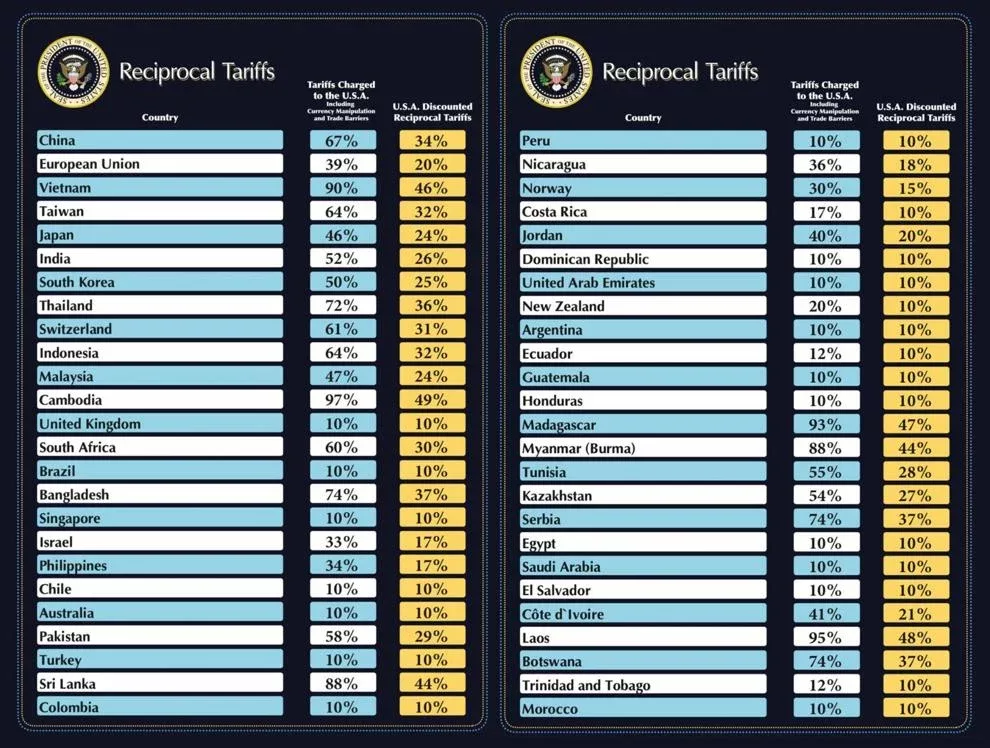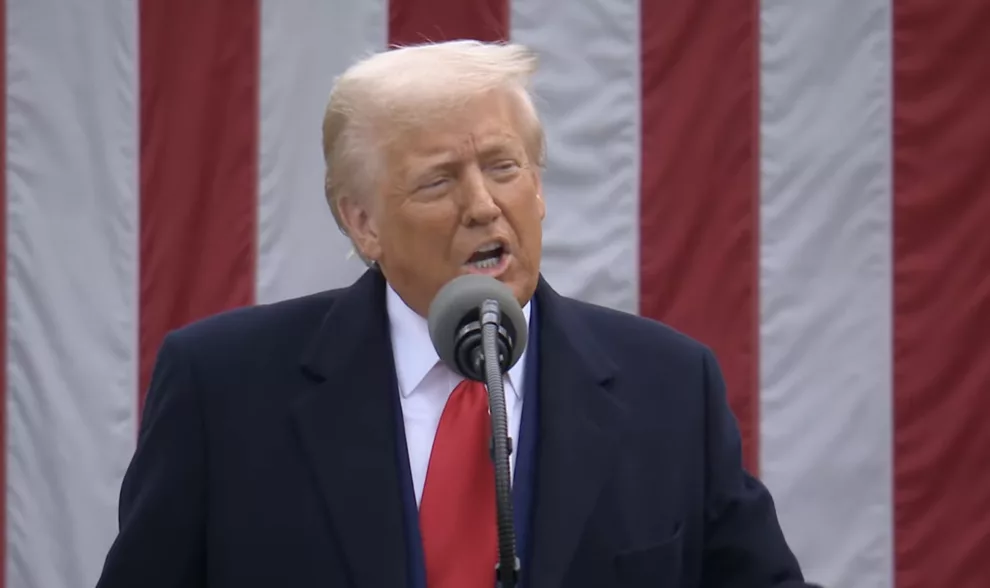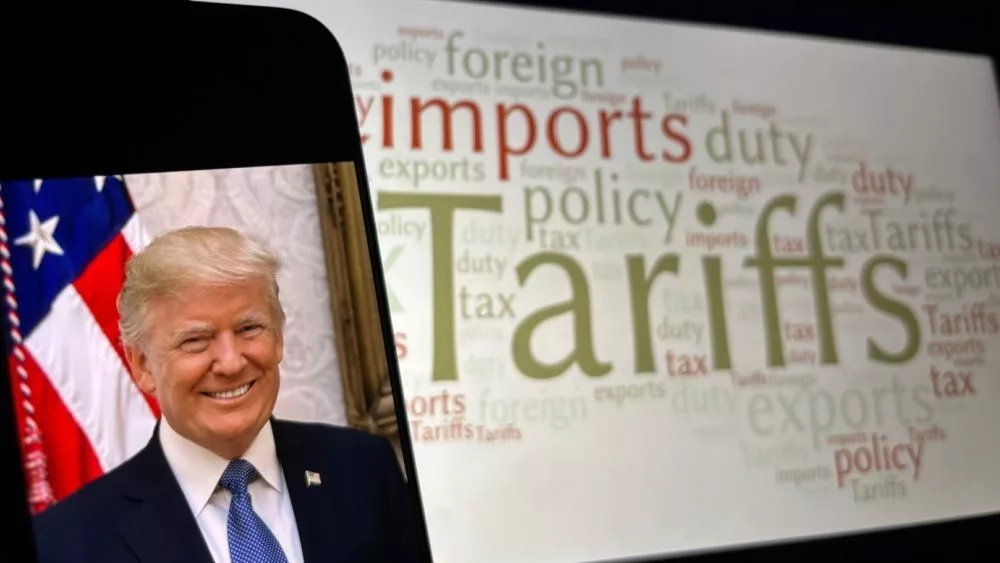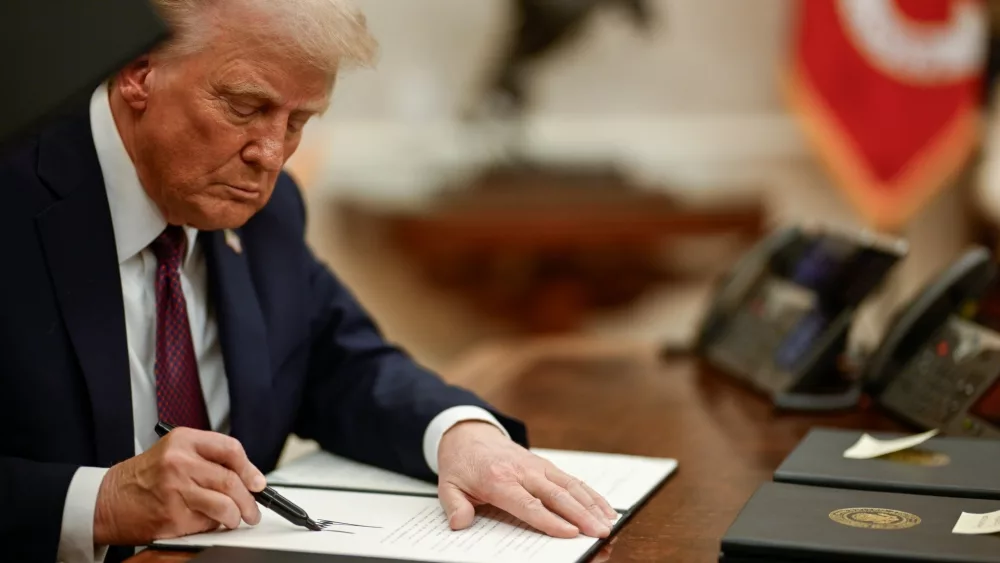WASHINGTON, D.C. – President Donald Trump detailed sweeping new reciprocal tariffs Wednesday designed to launch a new wave of domestic manufacturing as consumers keep their eyes on prices at the gas station and grocery store.
Trump’s “Liberation Day” plans included a previously announced 25% tariff on foreign automobiles and auto parts and reciprocal tariffs on countries that put taxes on U.S. imports. Trump said the tariffs would be about half of what other countries charge the U.S.
“April 2, 2025 will forever be remembered as the day American industry was reborn, the day America’s destiny was reclaimed and the day that we began to Make America Wealthy Again,” Trump said from the Rose Garden. “For decades, our country has been looted, pillaged, raped and plundered by nations near and far, both friend and foe alike.”
Trump said American workers have been forced to watch as other nations took jobs, factories and industries away from the U.S.
“Foreign cheaters have stolen our jobs, ransacked our factories and foreign scavengers have torn apart our once beautiful American dream,” he said.
For China, the tariff rate will be about 34% on imports from the world’s most populous nation. For European Union countries, it will be 20%. For Japan, the duty will be 24%. Imports from India will get a 26% tariff. Cambodia will get hit with a 49% tariff.
In addition, Trump said a 10% baseline tariff would go into effect on April 5.
Products made in America won’t face additional duties, Trump said.

White House
The broad-based tariffs on imports could spark a worldwide trade war.
U.S. Sen. Rand Paul, R-Ky., said only Congress has the power to put taxes in place. He also said free trade has made the nation rich and that tariffs would harm the U.S. economy.
“Trade is a good thing. Trade is proportional to prosperity, and so tariffs are bad economically,” he said.
Trump has said the tariffs are needed to grow U.S. manufacturing and said Canada, Mexico and China have done little to stop the flow of fentanyl coming into the U.S.
Democrats worked to thwart Trump’s tariffs, introducing a measure to stop tariffs on Canada, a longtime ally and top U.S. trading partner.
Senate Democratic Leader Chuck Schumer, D-N.Y., called tariffs a tax on families. Schumer said the average American family would face an additional annual cost of $5,000.
“It’s creating huge problems,” Schumer said.
The U.S. Chamber of Commerce has warned for months that tariffs could increase costs for U.S. consumers and hurt businesses. Neil Bradley, chief policy officer at the U.S. Chamber of Commerce, said businesses large and small don’t want tariffs.
“What we have heard from business of all sizes, across all industries, from around the country is that these broad tariffs are a tax increase that will raise prices for American consumers and hurt the economy,” he said. “We urge policymakers to instead focus efforts on accelerating the pro-growth agenda of extending our current tax policy, re-balancing regulations, and unleashing the full potential of American energy – all policies that will grow the economy and create more opportunities for Americans. In addition, the U.S. should begin negotiating new trade agreements to open up more markets for businesses and workers which will support more American jobs and lower prices.”
Last week, Trump announced a 25% tariff on imported automobiles and auto parts, duties that he said would be “permanent.” The White House said it expects the auto tariffs on cars and light-duty trucks will generate up to $100 billion in federal revenue.
Trump said eventually he hopes to bring in $600 billion to $1 trillion in tariff revenue in the next year or two. Trump also said the tariffs would lead to a manufacturing boom in the U.S., with auto companies building new plants, expanding existing plants and adding jobs.
Trump predicts his protectionist trade policies will create jobs, make the nation rich and help reduce both trade deficits and the federal government’s persistent deficits.
The “Liberation Day” tariffs come after months of talk since Trump took office in January. On the campaign trail, Trump frequently called “tariff” the most beautiful word in the English language.
Source: Brett Rowland, The Center Square, “WATCH: Trump Says Wave of Reciprocal Tariffs Will go Into Effect at Midnight” April 2, 2025.





